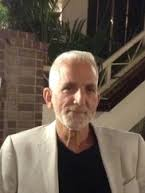I do not think it is possible to
narrow a good novel down to a formula of some kind. If it was possible to do
so, a novel would not be . . . well, novel.
In that there are certain areas of overlap that good novels share, I can say
with some certainty that a good novel has interesting and complex characters
facing interesting and difficult situations, and
the whole of what they do and
what happens makes for a damned good story. Additionally, the characters and
their story may imbue the reader’s experiential perspective with renewed
radiance and a degree of insight. By this I mean a powerful story with well
realized characters can alter the reader’s perspective regarding human
reality. It can teach without being
didactic. It can inspire without being inspirational. It can, while having
great emotional impact, bring many new
things into one’s awareness. It can even change one’s ontology, the
relationship one has to existence. Characters in a novel can become as real as
actual people. Certainly some of the great literary characters live far longer
than do people. I will never forget Lina
or Elena in Farrante’s brilliant Neapolitan series, and I think they will live
long in the minds of future generations. These two female characters taught me
more about what goes on inside a woman’s mind and heart than anything I have
ever read, fiction or non-fiction. It
does not matter how bright or dark the novel is; a good novel deeply affects
the reader in some way.
Now on the other side of the
question, because language and human imagination suggest infinite capacity, any
attempt to reduce the novel to some theory will ultimately fail. Literary
theory is necessarily incomplete because the varieties of human experience are
without limit, as is the human imagination and the capacity of language. There
can be great novels that do not meet conventional criteria. Finnegan’s
Wake, for example, is considered by many to
be a literary masterpiece. Also future technological developments will create
new possibilities for stories. I’m thinking here not of a novel but of Charlie
Booker’s television series, Black
Mirror. I believe that the stories/scripts of
these shows, which freely mix science and science fiction, have great literary
merit. Like a 21st century version of the Rod Serling’s The
Twilight Zone, they have much to say about
human reality.
/////////////////////////////////
Title: Ninety Nine
Genre: Literary Novel
Author: Rocco Lo Bosco
Website: roclobosco.com
Publisher: Letters at 3am Press
Purchase on Amazon
About the Book:
During the summer of 1963 in Brooklyn, Dante’s family falls into financial ruin after his stepfather borrows money from loan sharks to start his own trucking business. Young Dante has his first love affair, with an older woman, while his stepbrother Bo struggles with murderous impulses over his mother’s abandonment. The brothers become part of the Decatur Street Angels, a wolf pack led by their brilliant cousin who engages them in progressively more dangerous thrills. Four event streams—the problem with the loan sharks, Dante’s affair, Bo’s quest for closure, and the daring exploits of the Angels—converge at summer’s end and result in a haunting tragedy.
Ninety Nine is a fierce coming-of-age story, with tight plotting, interesting characters, and the timeless ingredients of any good piece of fiction—the anguish of change, the agony and ambivalence of love, the exuberance and craziness of youth, and a tragic ending with the whisper of redemption.

About the Author:
A writer for over three decades, Rocco Lo Bosco has published poetry, short stories and two novels. His first novel, Buddha Wept (Greycore Press, 2003), about a spiritually gifted matriarch’s experience of the Cambodian genocide, received good reviews (e.g., Publishers Weekly) and much praise from readers, many of whom called it “life changing.” His current novel, Ninety Nine, is published by LettersAt3amPress. Lo Bosco also has a nonfiction book in press with Routledge (2016), co-authored with Dr. Danielle Knafo, a practicing psychoanalyst, entitled Love Machines: A Psychoanalytic Perspective on the Age of Techno-perversion. He is currently working on his third novel, Midnight at the Red Flamingo. Additionally, he has edited papers in the fields of psychoanalysis and the philosophy of science and has also worked as a ghost writer.

